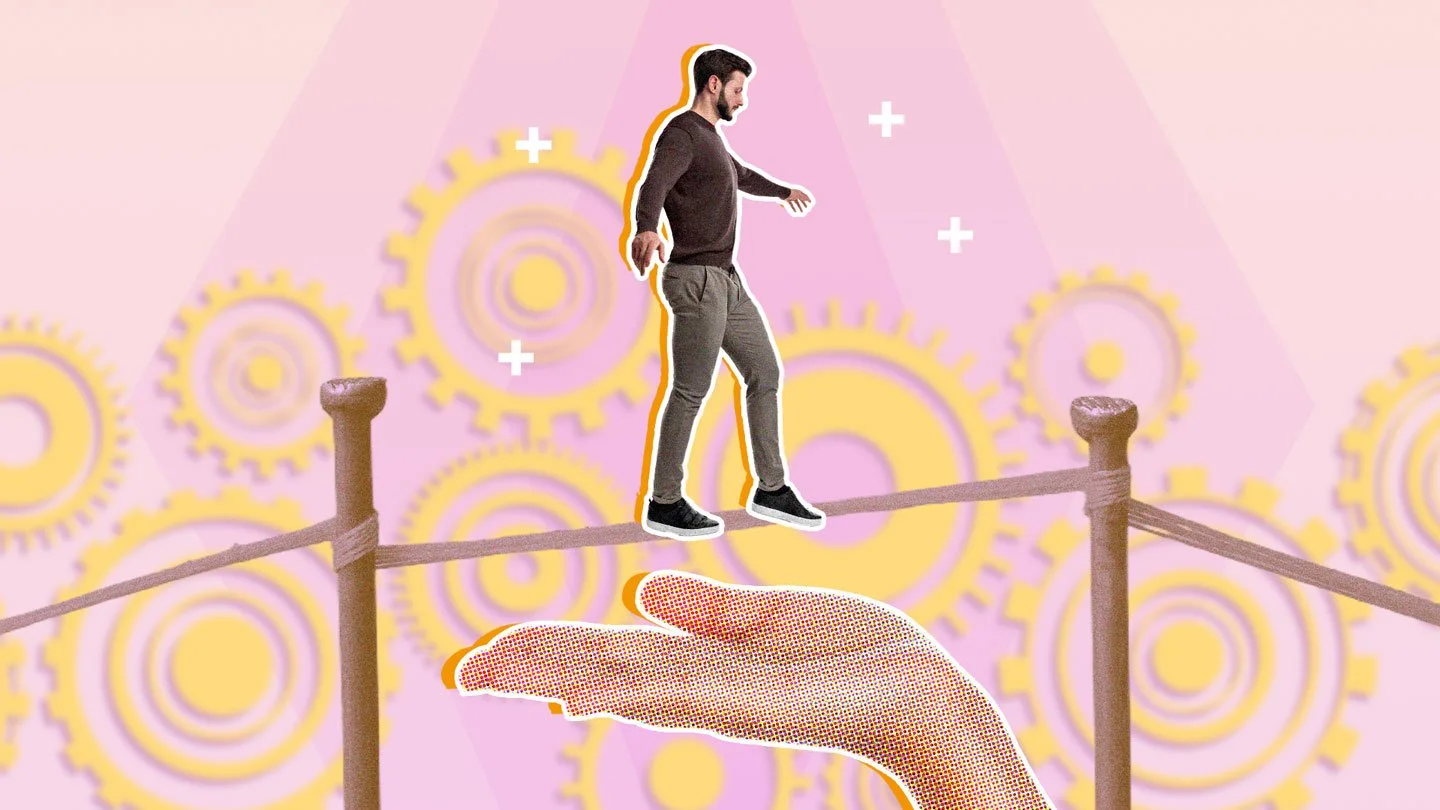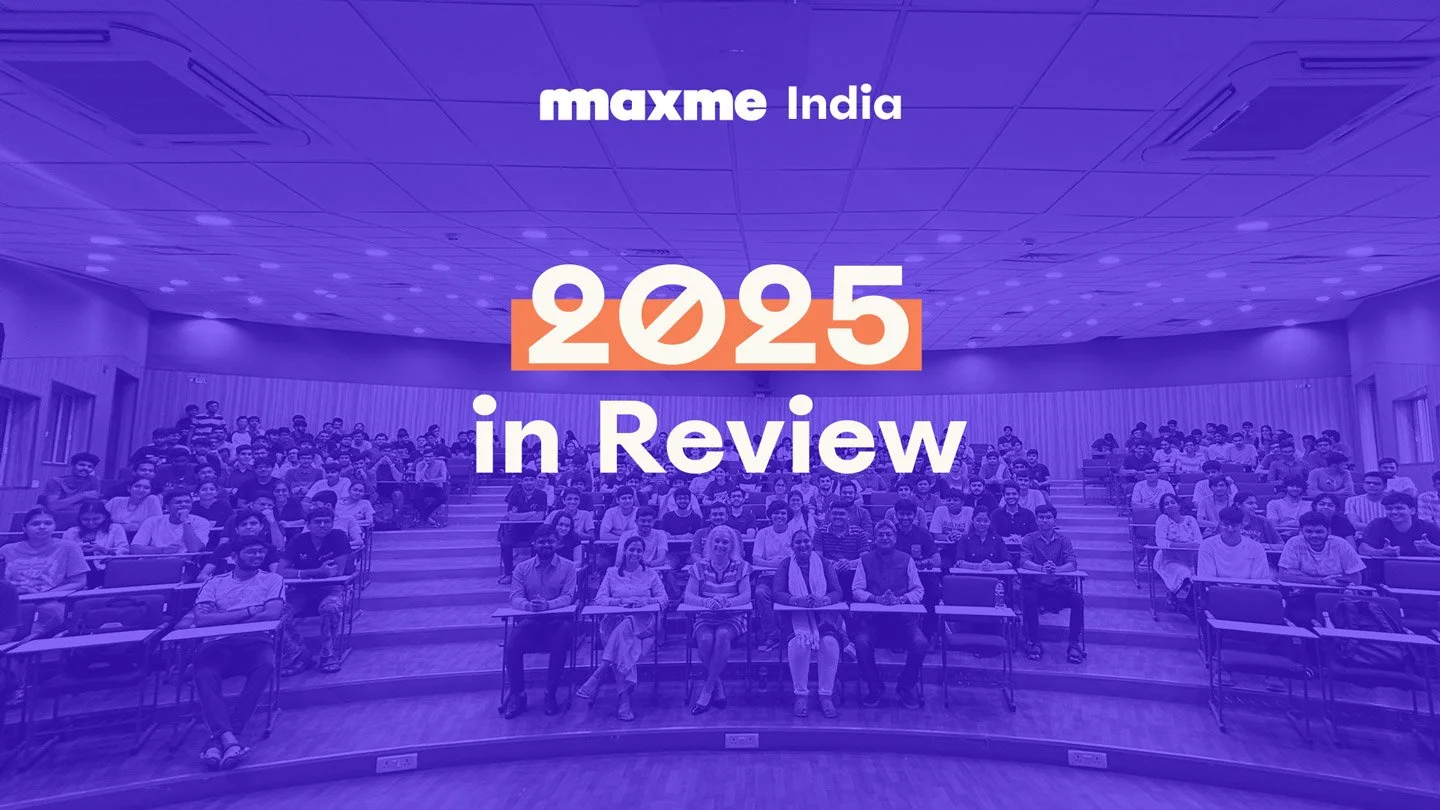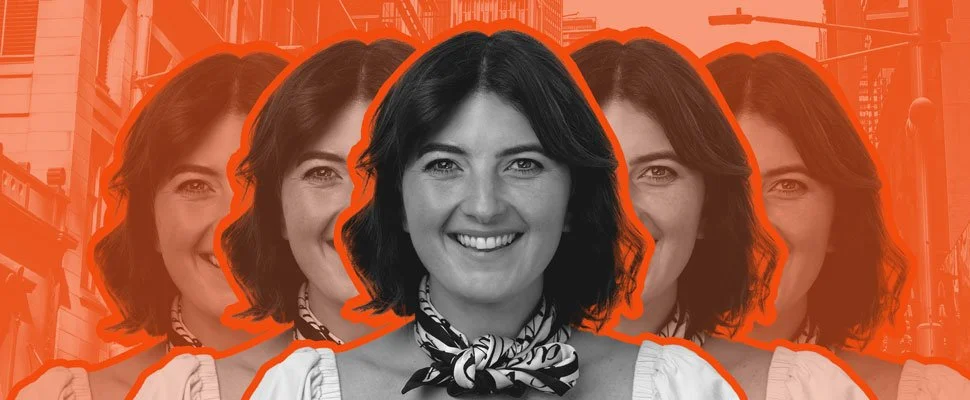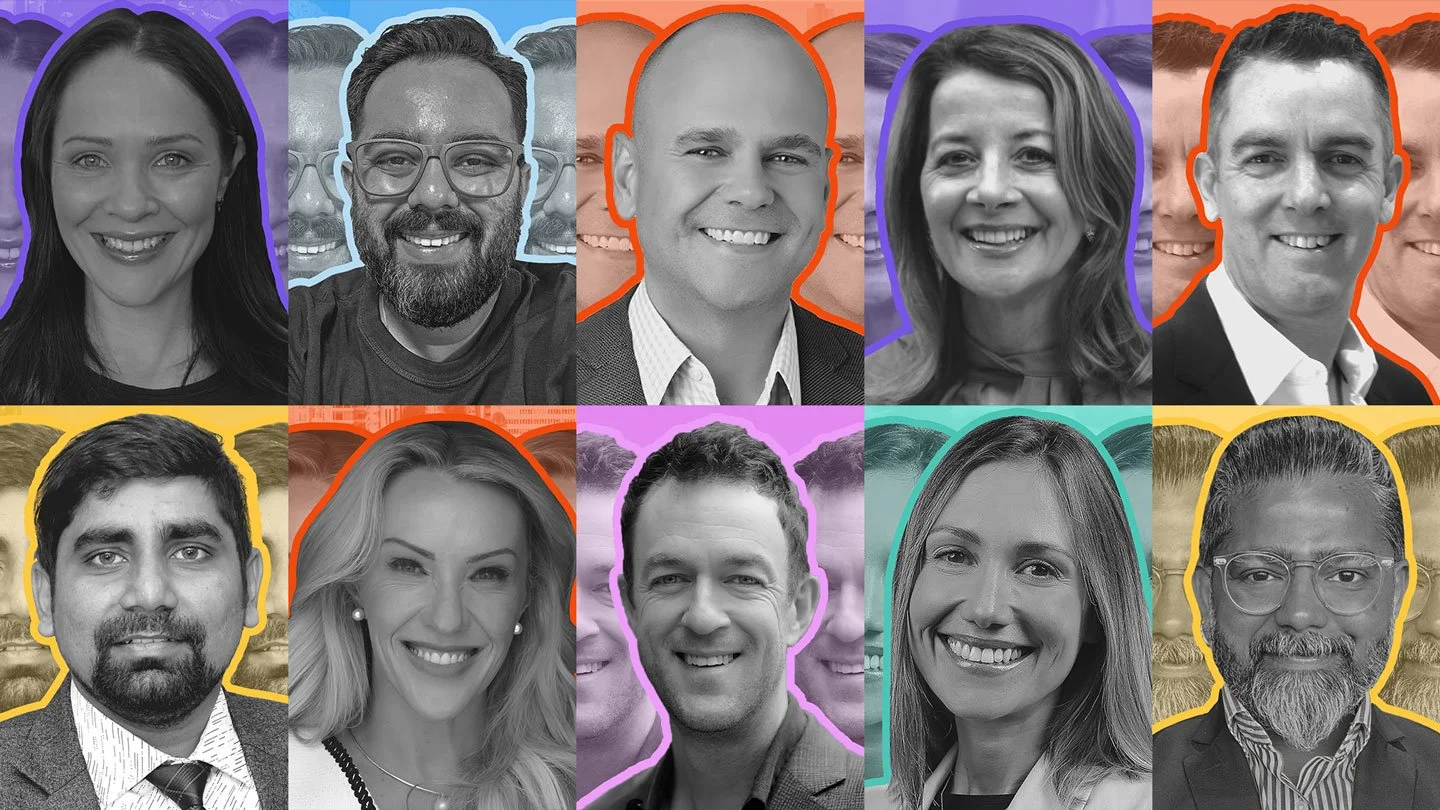Human on the Inside with RMIT Forward’s Sally McNamara
Maxme: We’re big believers in the power of human skills. But don’t just take our word for it - the evidence for excellence powered by human (‘soft’) skills is everywhere! In this engaging, ever-enlightening series, we speak with industry leaders, innovators and game-changers to learn a little about their personal career journeys, and how human-led strategies, philosophies and cultures are proving a force for good in their working worlds …
Welcome Sally, and thanks for stepping into the #SuccessIsHuman Spotlight!
You’re Development Partner at RMIT FORWARD: The Centre for Future Skills and Workforce Transformation.
In 1 sentence (ok, we’ll give you 3), what does your role entail?
Sally McNamara: FORWARD acts as a system catalyst – helping RMIT’s research centres, workforce partners, and other stakeholders prepare for the future of work. I lead a workstream exploring how human skills can be foundational to all other learning (i.e. skills like resilience can help build capacity to learn and re-learn the technical skills that keep changing - like digital skills).
Speaking of change resilience – I’m leading a workstream to reframe pregnancy and parental leave from "time out of the workforce' to "a time of radical upskilling", positioning women as even more capable for higher value work upon returning to paid work. It’s still largely women who are caring for young children and facing the “motherhood penalty”. We need to surface the inherent value of the mother experience and articulate how it amplifies paid work through honing important transferable skills – many of which are human skills we desperately need in leadership today!
M: You’ve been with RMIT FORWARD for just over a year now, and the role certainly looks like a wonderful fit given your pedigree across marketing, innovation, transformation and change. You kick started your career in marketing and strategy for global leaders including Siemens, BBC, Griffith Hack, Ashurst and over 6 years with DLA Piper in Melbourne, Hong Kong and London. Returning to Australia in 2018, you pivoted from the legal sector into roles that were more focused on people, change and the future of work. This chapter included roles with Urbis, The School of Life and HSM.
9 months ago you ventured into a period of seriously radical upskilling - first time parenthood!
How does all this work speak to your personal purpose and what drives you as an individual?
SMN: When I think about what all these roles have had in common - the moments of the most purpose and fulfilment have been all about communication and connection. I love going below the surface level conversation to understand what’s really going on for people. Supporting busy lawyers on building client relationships was all about understanding how to address the fear and feelings underneath any resistance to trying something new, or going after something big. Similarly, moving into the innovation / change space has been all about bringing curiosity and questions, rather than telling and answers. The thing I love about change work is the levels of change - cognitive, emotional, behavioural - you have to address them all and I really enjoy the depth of that process, of going below the surface.
I feel strongly that it’s important to help people feel seen, heard and safe to be able to make real change. Change is uncomfortable and messy and so I guess overall my purpose is to help people feel safe in the flux of that, to help normalise the experience of being human.
I heard a podcast once that said, if you could put any words up on a billboard for all of humanity to see, what would they be? Mine would be “there’s nothing wrong with you”.
That very much connects to the experience of becoming a parent - it’s been a humbling, majestic, magical, overwhelming at times experience for me and it’s still unfolding. It’s required a lot more self-inquiry and getting comfortable with being uncomfortable.
M: Tell us a little about your personal education pathway/s - what led you to where you are now? How closely do your formal qualifications match your current career?
SMN: I honestly had no idea what to do after school. I knew that I loved literature and English and I literally could not comprehend maths or science. But I didn’t follow my instinct to do an Arts Degree in fear of it not leading to a stable career.
I ended up doing a Bachelor of Business majoring in Marketing initially, suffering through Accounting and Economics. Looking back, I can’t believe I got through it and I wonder why I didn’t transfer to something more suitable.
Then after a few years I realised I felt bored and stuck, and that I had about 40 years left to work, so I ignored recruiter advice saying I shouldn’t change track, googled ‘change’ and ended up doing a Change Management Post Grad.
Most recently I’ve trained as a professional coach and I have to say that’s been the hardest qualification of all, because it’s ALL about the human skills, including a lot of self-awareness and self-management. One of the most vulnerable experiences I’ve had in learning was when recordings of my coaching sessions were listened to by a supervisor and given really clear, pinpoint precision feedback. All completely in the service of growth, so I’m very grateful for it now, but it was hard to sit through at the time, there was literally nowhere to hide.
M: If you could share one piece of career advice to your 21 year old self it would be ...
SMN: Try not to take other people’s behaviour or actions at work too personally, it’s probably nothing to do with you (unless you make it about you!). There’s a quote I try to remember in the times it feels personal: “Everyone is fighting a battle you know nothing about, be kind”.
M: Maximising the potential of individuals, communities and businesses through the power of human skills is the reason Maxme exists. Can you tell us a little about the role and / or value of human skills in your workplace or industry right now?
SMN: When I think of “future of work” I think about how human skills are going to be foundational to achieving our aspirations.
ChatGPT and other tools like it are phenomenal. And they’re also just a tool. We need to use our human skills to adapt to working with these tools in a way that supports human flourishing, rather than adding more overwhelm and stress to our lives. We only have to think about how misused email has been in knowledge work. I’ve certainly had times where it felt like all I was doing was trying to keep up with answering hundreds of emails a day and it felt meaningless, like I wasn’t actually achieving anything.
I also see a fundamental reckoning coming of what it means to be human when these tools can think like a human. What are we gaining and also what are we losing as well? Human skills should be at the forefront of this great adaptation and we all need to process how we feel about this shift.
If we don’t have the skills to be adaptable and navigate the complexity and pace of change that’s going on, we can’t learn new technical skills - how ready to learn do you feel when you’re anxious and stressed?
M: Self awareness sets the critical foundation for all Maxme learning experiences. What’s your strongest trait / personal super power?
SMN: I absolutely agree it all starts with awareness, and awareness can be painful in my experience, it can be uncomfortable and knock you off your perch, and that’s when you know real change and growth is happening!
My superpower has been communication - being able to flex my style to build rapport and trust with people, especially people who might be unsure about what value I can bring. I think I’ve always enjoyed that challenge of getting someone sceptical onside and that’s probably why I’ve enjoyed working in professional services and in change work.
M: And on the flip side, what’s one human / ‘soft’ skill you’ve had to really work on improving over the course of your career?
SMN: Practising empathy in the right way. My natural tendency was to totally absorb another person’s problem and take it on. This helped me build rapport and relationships with people, yet it also burned me out.
I reported to a COO many years ago who used to patiently listen to me roll-out my list of concerns about people and their problems and then say: “I hear what you’re saying and none of those things are your problem”. At the time I thought he was being a bit cold hearted, but then my coach training helped me finally see that actually I was disempowering people and not trusting them to be able to solve their own problems.. As my supervisor said after listening to an early recording: “you want to care for your client, but not care-take them. You need to trust that they are fully capable of finding the answer themselves”.
M: If you could share one piece of career advice with recent Uni graduates or candidates keen to work in a field like transformation, change &/or self-readiness for the future of work, what would it be?
SMN: Develop the skill of change at a personal level. Practise it in little ways like trying a new activity where you might feel self conscious at first. Sit in the discomfort and flux - if you can’t be with it, then you can’t expect others to go through that journey with you.
I’ve found that it really helps to incorporate body awareness as well as mind - the mind can only take us so far. So when you feel uncomfortable, stop and allow that feeling to be and pass through - they all do eventually, but not if we resist them.
Experiment with building your inner resources as an anchor point through change, because the external world will overwhelm us if we let it. Know your values, strengths and interests - what energises you and what drains you gives you a lot of great insight into how to sustain yourself through change.
M: You’ve been granted approval to add one Uni graduate to your business, but have 100 applicants, all with outstanding academic results. How do you find your perfect candidate - what are you looking for?
SMN: Someone who is aware of or working towards developing their self- knowledge - such as values, strengths and interests.
The intersection of strengths and interests is where the most magical contributions happen. Working lives are longer than ever before, as we’re living longer than ever before. For it to be sustainable, you have to understand what you’re good at, yes - but also what you enjoy. You need energy to do good work, and there’s no more natural energy than aligning strengths and interests.
I’ve definitely forced myself to do work that I wasn’t suited to, because I thought I should. It provided many external benefits (recognition, financial rewards) but I felt emotionally and mentally drained, so it wasn’t sustainable.
In the words of American philosopher, psychologist, and educational reformer John Dewey, “education is not preparation for life, education is life itself.”
M: What’s next on your #learning agenda?
SMN: Like everyone, I’m grappling with what it means to be human in the age of AI and I’m equal parts enthralled and horrified by the rate of exponential change. I’m not naturally drawn to technology, but I think we all now have a responsibility to learn about it and help shape it as an inclusive force for good - we are all technologists now, whether we like it or not.









